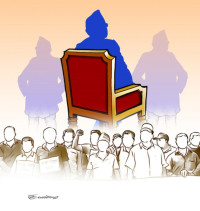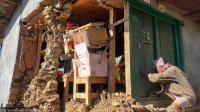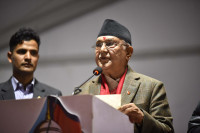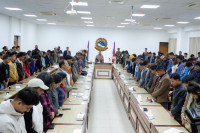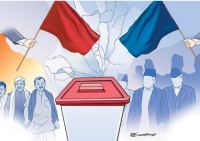Opinion
Escape plan
The country needs a strategy to break away from the stranglehold some countries have over Nepal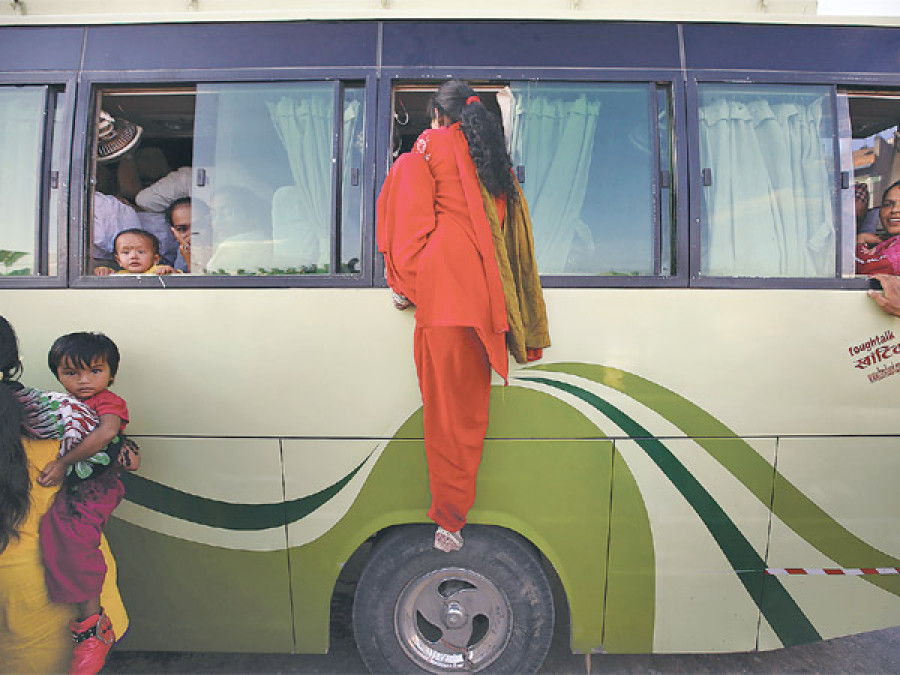
Shyam Kc
The country is passing through a difficult time, but somehow or the other, and sooner or later, the present crisis will be over. But for how long? Today it might be our southern neighbour that is causing us untold suffering hot on the heels of the devastation and misery caused by the April earthquake. And tomorrow, it may be our northern neighbour that might cause us an equal amount of suffering. But most of us tend to forget the sufferings once they are over, and to think that such contingencies will never arise again. That, of course, is wishful thinking; and the reality is more complex and painful for landlocked countries, especially landlocked and least developed countries like Nepal. We, who live in landlocked countries, need to be visionaries in order to overcome such problems.
International help
Coastal countries, which are also transit countries, tend to take advantage of landlocked countries. They have no qualms about holding landlocked countries hostage, and extracting the required pound of flesh closest to their heart. There are almost half a billion people living in landlocked countries in different parts of the world. Those who live in countries like Switzerland have little to worry about their access to the sea because they have been able to use their landlocked nature to their advantage. In any case, such states are located in Europe where transit countries seem to have a more comprehensive understanding of the needs and rights of landlocked countries, than countries in Asia and Africa. Landlocked countries, therefore, need to make collective efforts to overcome the geographical, political, technical and other disadvantages that they face. It must be emphasised that the wide seas and oceans belong as much to landlocked countries as they do to coastal countries.
The UN Convention on the Law of the Sea is a just minimal instrument guaranteeing access to the sea for landlocked countries. And this UN law that was drafted way back in the late 1970s and early 1980s needs improvement because of the changed world context and greater needs of the landlocked countries. So a collective effort on the part of landlocked countries is necessary with the help of some enlightened and, hopefully, economically and militarily powerful countries to make such changes possible so that no transit country can resort to blackmailing landlocked countries. The tendency of transit countries to make smaller and less powerful landlocked countries subservient—hence, virtually a modern-day colony —must be put to an end. The global community must be able to ensure that the rights of landlocked countries are observed by all transit countries.
A seat in Security Council
We have set up a lot of organisations the world over including the UN to ensure the human rights of all the people. The International Criminal Court has been established to punish the guilty no matter who the person may be. (It is a different matter that such courts never bring in rich and powerful leaders like those of France, Britain, Russia and the US for the use of drones and killing of the innocent by indiscriminate bombing to justice.) Further, there is talk of the expansion of the UN Security Council, and this is a unique opportunity for landlocked countries to plead that any expansion of the Security Council must ensure a permanent place for a landlocked country. This is an initiative that Nepal can and must take along with landlocked countries in the UN. For surely, landlocked countries that together hold almost one-eighth of the world population cannot go unrepresented in the Security Council.
We say that our constitution seeks to be inclusive and has reservations for Dalits and backward classes in Parliament and government bodies. Yet, there is no system in the world whereby countries that are landlocked and, therefore, disadvantaged in many ways, are given no opportunity to compete on equal terms with the rest of the world. Nepal needs to take the initiative in this direction. The dream of a separate seat for landlocked countries in the Security Council may look unattainable, but it is a dream worth striving for. And Nepal needs to take diplomatic and other forms of leadership to make the dream a reality.
A new plan
Until alternate energy sources are found and made economically feasible, petroleum products will be needed in the country, and we have to get them in all ways possible. Our political leadership must ensure that there are pipelines coming in from the south, north and east (Bangladesh) so that no single country, by itself, can hold us hostage on the flimsiest of grounds. Our leadership could also consider the possibility of extending the Iran-Pakistan-India-Bangladesh pipeline to Nepal. It is also important that we seek road access, as a matter of right, to countries other than our immediate neighbours, India and China. The most feasible point would be to build a tunnel across the narrow strip of Indian territory to Bangladesh. If a tunnel can be built across the English Channel, there is no reason why such a feat cannot be accomplished here, especially in this day and age when all countries profess friendship and cooperation (even if they have different inner motives).
On the home front, it is welcome news that a deal has been signed with our northern neighbour for the supply of petroleum products. It is heartening to see more and more young people opting for bicycles and discarding motorcycles. It is heartening not merely because it saves imported petrol, but also because it is good for the person as it is a form of exercise. This could ultimately lead to a healthier country than the one raised on cars and motorbikes. The government, for its part, needs to cut down on the consumption of fuel by taking away the vehicle facilities given to senior government officials. Instead, buses and other forms of mass transport can be used. There is also a need to educate the people on the use of public transport. Private vehicles, especially those that run on imported gasoline, need to be used as little as possible, and only when really needed. The country needs a better plan for the future to break away from the stranglehold some countries have over this country.




 10.12°C Kathmandu
10.12°C Kathmandu
